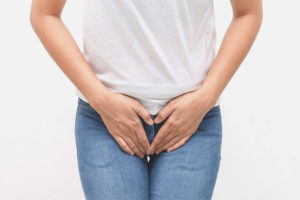The content of the article
Appendicitis is an inflammation of the appendix, the rudimentary process of the rectum. Most often, appendicitis occurs in women due to structural features of the organs in the abdominal cavity. In both men and women, appendicitis is considered an acute illness requiring immediate medical attention. That is why early diagnosis plays a crucial role. It is difficult to detect the development of appendicitis in women in time, because many women associate pain with the menstrual cycle. In this article, you will learn about the signs and symptoms of appendicitis, read about the causes of the inflammatory process, and also get acquainted with the main ways of treating this pathology.
Symptoms of appendicitis in women
The appendix is a small process or branch of the rectum. It may accumulate the remains of unprocessed food, feces. If the bacteria gets inside, the inflammatory process begins. Often inflammation of the appendix does not begin due to the contents of the appendix, but passes from neighboring organs. Women in the abdominal cavity have much more organs, so the risk of developing appendicitis is higher. Consider the main signs of appendicitis in women.
- The very first symptom of appendicitis is abdominal pain. The pain may be aching, but more often it is acute and severe. In some cases, a woman may lose consciousness from pain. At first, the pain does not have a clear localization - the whole stomach hurts. Later, the pain can be mixed to the right side to the level of the hypochondrium. In general, the rudimentary process is mobile and can change its location. Someone feels pain at the level of the ribs, in some cases the appendix drops into the pelvic region.
- As a rule, pain in the abdomen intensifies with movement - while walking, with coughing or laughing.
- In some cases, pain can be given to the right leg. Because of this, a person cannot walk or is seriously uncomfortable walking.
- Often inflammation of the appendix is accompanied by nausea, sometimes - vomiting. Moreover, after vomiting does not come relief, health is still poor. As a rule, it is these symptoms that become decisive - with inflammatory processes of the genitourinary system, vomiting and nausea usually do not happen.
- It happens that appendicitis develops in a pregnant woman. In this case, she may experience severe shortness of breath. Often in women and men with appendicitis, the abdomen becomes stony due to the smooth muscle tension. During pregnancy, this diagnostic method is difficult to use, since often the abdomen could be hard not from appendicitis, but from hypertonicity.
- Appendicitis in women is often accompanied by a slight increase in temperature to 37.5 degrees.
- The woman’s well-being worsens - she experiences weakness, loses her appetite, and general malaise is observed.
- With appendicitis, stools may be impaired - constipation or diarrhea develops.
It is very important to pay attention to the anamnesis and associated symptoms in order to confirm or refute the diagnosis. For example, the risk of developing appendicitis increases if a woman has had various inflammatory processes and infections in the genitourinary system. Since organs are nearby, inflammation can pass from the ovaries, appendages, etc. If, along with the main symptoms, belching, increased gas formation, severe and frequent heartburn appear, it is possible to presume not pancreatitis, but appendicitis. Black feces indicates internal bleeding and a possible exacerbation of peptic ulcer.If there is no menstrual bleeding or a delay is observed, then acute abdominal pain can be mistaken for an ectopic pregnancy. Be sure to tell the doctor about the accompanying symptoms, this will help to make the correct diagnosis.
Signs of appendicitis in women
An experienced surgeon can diagnose appendicitis after a simple examination. However, to ensure the accuracy of the results, the patient can be prescribed an ultrasound of the abdominal cavity and a general blood test in dynamics. The total number of leukocytes in the inflammatory process increases, with ultrasound, the enlarged and inflamed process is difficult to miss. However, even before the appointment of studies and laboratory tests, appendicitis can be confirmed by some clinical signs.
- In pregnant women, the pain intensifies when turning from the left side to the right.
- When you press the right iliac region, the pain intensifies, especially if the patient lies on his left side.
- During pregnancy, pain on the right side becomes stronger if you lightly press on the uterus on the left side.
- On palpation of the rectum, pain in the right side of the abdomen becomes more pronounced.
- Measure the temperature with a conventional thermometer, first in the right and then in the left armpit. On the right side, the temperature with appendicitis will be slightly higher.
- Ask the patient to inhale and draw in the stomach as much as possible. At this point, the pain on the right side of the abdomen will intensify.
- If, during palpation, ask the patient to stretch and bend (or bend) the leg, the pain intensifies sharply. In general, with acute appendicitis, it becomes difficult for the patient to raise her right leg.
- If you put the patient on a flat surface and feel the right side of the abdomen, you can stumble on the strained oblique muscles of the press. In medicine, these muscles are called "appendicitis strings."
- If you click on a point just below the navel, with appendicitis it will be quite painful. Then the patient needs to get up. If the pain persists or intensifies, then the inflammation has passed to the genital organs.
- Often, examination of the uterus (especially the cervix) brings very painful sensations.
All these symptoms confirm the presence of appendicitis. If at least several signs or symptoms are found, consult a doctor as soon as possible. Especially if appendicitis is suspected in a pregnant woman.
Why does appendicitis occur in women
Most often, inflammation of the appendix develops due to mechanical blockage of the intestinal lumen. If fecal matter enters the process and does not find a way out, they rot, bacterial inflammation appears, the appendix increases in size, swells, and fester. It is very important to get to the doctor before it ruptures, otherwise peritonitis can lead to death.
Appendicitis can also develop due to previous infectious diseases, disorders in the endocrine system. Sometimes inflammation of the appendix can be preceded by a malfunction of the walls of blood vessels in the organ. Improper nutrition, chronic infectious diseases of neighboring organs, stress, allergies - all this can provoke the appearance or exacerbation of appendicitis.
Treatment of appendicitis in women
Appendicitis is quite rapid. In the first 48 hours, the pain increases, becomes acute or aching, intoxication of the body appears. The appendix at the same time increases in size - feces, pus, and mucus produced in it accumulate in it.A few days after the onset of the attack, appendicitis breaks and the entire contents of the inflamed organ enters the abdominal cavity - peritonitis develops. In fact, it is very dangerous because it can be fatal. Therefore, at the slightest suspicion of appendicitis, you should consult a doctor as soon as possible.
Appendicitis treatment is the surgical removal of the appendix. A few decades ago there were attempts to use conservative treatment - the inflammation temporarily disappeared, but after a while it developed again. Today, surgical excision of appendicitis is considered the most effective and efficient treatment. However, modern technology does not allow simple abdominal dissection, but laparoscopy. Three holes are made in the right iliac abdomen, through which tools and a small chamber are placed inside the abdominal cavity. Two functions are immediately performed - the diagnosis confirms the presence of an inflamed process, then an organ removal operation is performed directly.
Quite often, appendicitis is observed in pregnant women for the reasons described above. Treatment in this case should be as correct as possible so as not to harm the mother and fetus. In some cases, a decision is made to administer antibiotics directly to the area of the inflamed appendix. In this case, it is important to “stretch” the woman to the physiological period when the fetus will be viable. If chronic inflammation of the appendix does occur, one should not take risks and plan a pregnancy until it is removed.
Appendicitis is a serious diagnosis that requires a timely response. Diagnosis of appendicitis in women is complicated by a large number of organs located in the abdominal cavity. However, careful attention to your own body and our tips will help you in time to recognize the signs and symptoms of appendicitis in women.
Video: how to recognize the first signs of appendicitis












Submit